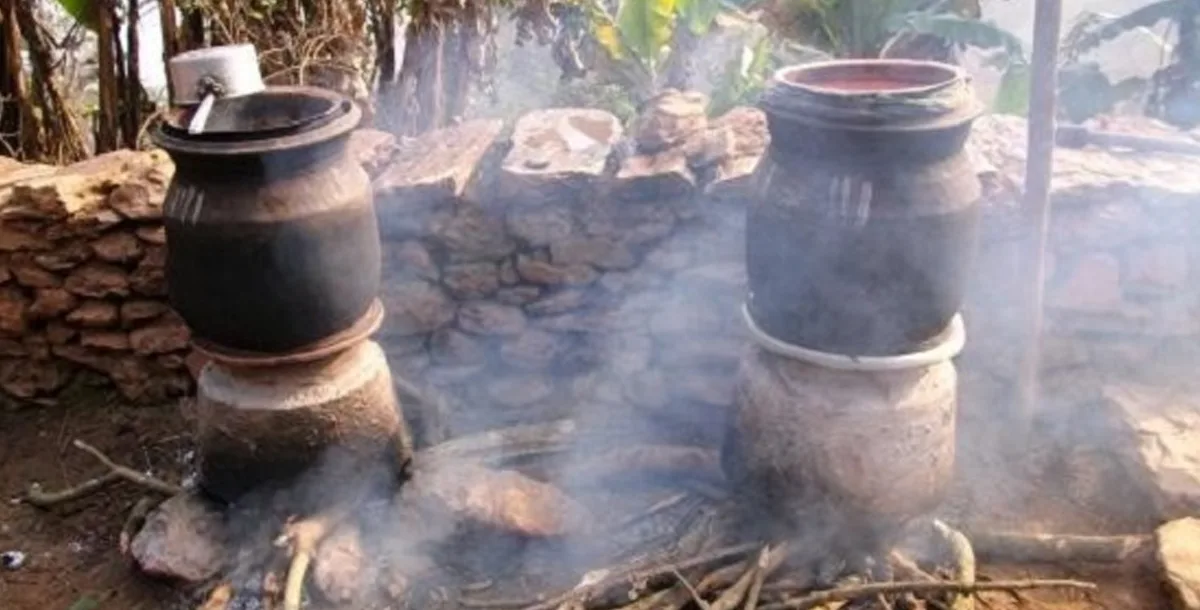KATHMANDU: In the budget statement for the next fiscal year 2024/025, the government announced that legal arrangements will be made for the production, branding, marketing, and sale of domestic liquor.
With Finance Minister Barshaman Pun highlighting this in the budget, discussions about the commercial production of domestic alcohol have gained momentum.
Ushakala Rai, a former member of the Koshi Pradesh Assembly, has long advocated that “homemade liquor should not be banned but branded.”
During her tenure as the Minister of Social Development of Koshi Province, Rai formed a task force for branding domestic liquor.
Following Rai’s campaign to rebrand homemade liquor, which the police have been seizing as illegal, local governments have begun to formulate laws to facilitate its sale and distribution.
For instance, the Gandaki Rural Municipality of Gorkha has enacted legislation to permit the production and sale of domestic liquor.
“Instead, the government should provide skills training in other fields rather than alcohol production,” he said. “It will be safer if the industry takes over production, and the government assumes ownership.”
With the announcement made by Finance Minister Pun, preparations for the production, branding, marketing, and sale of domestic liquor have accelerated across the country.
Both the Ministry of Finance and the Ministry of Industry are involved in these preparations.
The Ministry of Industry has been tasked with studying the appropriate model for introducing domestic alcohol.
Ministry prepares to choose among three models
The Ministry of Industry, Commerce, and Supply is currently examining which model to adopt for the production and distribution of domestic alcohol.
According to ministry sources, three options are being considered:
Local Government Model: Delegating the responsibility to local levels.
Cooperative Model: Managing through cooperatives.
Industry Model: Establishing dedicated industries for production and distribution.
“A discussion is ongoing about these options,” a high-level ministry employee stated. “One of these models will be selected, but which one cannot be determined yet.”
The ministry team is currently conducting a study, and the report has not yet been submitted.
The report will determine which model will be implemented for marketing domestic alcohol.
Chandi Prasad Ghimire, the spokesperson for the Ministry of Industry, indicated that the Ministry of Finance is spearheading the efforts for the legal production and distribution of domestic alcohol.
He added that initiatives are underway to create a distinct national brand for Nepali alcohol.
“Every country has its own wine brand,” said Chandi Prasad Ghimire, spokesperson for the Ministry of Industry. “We have moved forward with the goal of creating a brand for our country.”
Ishwar Prasad Koirala, Director of the Internal Revenue Department, noted that it is currently impossible to measure the quality of domestic alcohol.
“It would be different if the government established a separate procedure and structure,” he said.
“But in the current situation, it is not possible to measure the quality of domestic alcohol. We also lack the necessary manpower and infrastructure.”
Guru Adhikari, General Secretary of the Beverage and Cigarette Industry Association, believes the government should oversee production rather than encouraging home production.
Currently, around 40 liquor factories operate in Nepal. The quality measurement and lab tests of these factories are conducted by the Internal Revenue Department.
“The government should set standards and have the industry produce the alcohol accordingly,” he said. “It would be safer if the government branded and marketed the product.”
Adhikari emphasized the safety issues associated with non-uniform quality of home-produced wine.
“Instead, the government should provide skills training in other fields rather than alcohol production,” he said. “It will be safer if the industry takes over production, and the government assumes ownership.”
Legal revisions required
Currently, the fourth amendment of the Liquor Act, 2031, 2043, prohibits the sale and distribution of domestic liquor.
Section 3 of the Act prohibits the production of alcohol without a license.
Section 4 controls the sale and distribution.
Section 4(a) explicitly prohibits the sale and distribution of domestic liquor.
These legal provisions need to be amended to facilitate the production, branding, marketing, and sale of domestic alcohol under the new proposed models.
Section 4.2 of the Excise Directive, 2068 (revised version, 2079), prescribes the criteria for opening a liquor industry, including the requirement to obtain permission before starting operations.
Finance Minister Pun will need to amend the current Excise Act before implementing the budget provisions for the production, branding, marketing, and sale of domestic alcohol.
Once the Act is amended, the commercial production and marketing of domestic alcohol can commence.
Measuring the quality of the alcohol industry
Currently, around 40 liquor factories operate in Nepal. The quality measurement and lab tests of these factories are conducted by the Internal Revenue Department.
Ishwar Prasad Koirala, Director of the Excise Laboratory Department at the Internal Revenue Department, stated that the production test reports from these factories must be submitted to the relevant branch at the end of each month.
“From time to time, we also visit the relevant industries for monitoring,” Koirala told Khabarhub. “We conduct quality tests according to the standards provided by the quality department.”
“Currently, it is challenging to monitor even the approximately 40 alcohol industries in Nepal. Regulating home-produced alcohol will be more complicated, and bringing everyone into the realm of revenue collection will be even more difficult.”
According to Koirala, the testing varies depending on the product. “The small package has its specific quality standards, and the large bottle has its own,” he said. “The quality of different types of wine is measured accordingly.”
Liquor producers emphasize multi-stage alcohol testing
Liquor producers makers assert that alcohol undergoes testing at various stages.
Guru Adhikari, General Secretary of the Beverage and Cigarette Industry Association, explained that the quality of produced alcohol, the alcohol in production, and the raw materials used are all measured.
Officials also mention that not all produced alcohol is suitable for drinking; only those that meet the standards are sold.
Adhikari highlighted that testing domestic alcohol poses challenges since it requires step-by-step verification.
“Testing domestic alcohol using a device doesn’t seem feasible,” he told Khabarhub. “It’s not possible to definitively say it’s safe for consumption.”
Officials pointed out that poor-quality liquor has led to many deaths in Nepal.
Therefore, they stressed the need to establish standards before allowing the production and marketing of domestic alcohol.
They believe that many factors will be determined only after the government’s quality assurance measures are implemented to legalize domestic liquor.
Impact on revenue
Excise duty on alcohol, beer, and tobacco products significantly contributes to government revenue.
Data from the customs department shows that excise goods make a substantial contribution to the revenue.
Impact on revenue from liquor and beer
Over the last five years, revenue collected from liquor and beer has continuously increased.
In the fiscal year 2079/80, 25.92 billion rupees were collected from alcohol, and 32.61 billion rupees from beer.
The liquor industry warns that if domestic liquor is not properly managed, this revenue could decrease.
“If the regulation and marketing of domestic alcohol are not clear and strict, it will definitely affect the revenue,” said Guru Adhikari.
“Currently, it is challenging to monitor even the approximately 40 alcohol industries in Nepal. Regulating home-produced alcohol will be more complicated, and bringing everyone into the realm of revenue collection will be even more difficult.”









Comment